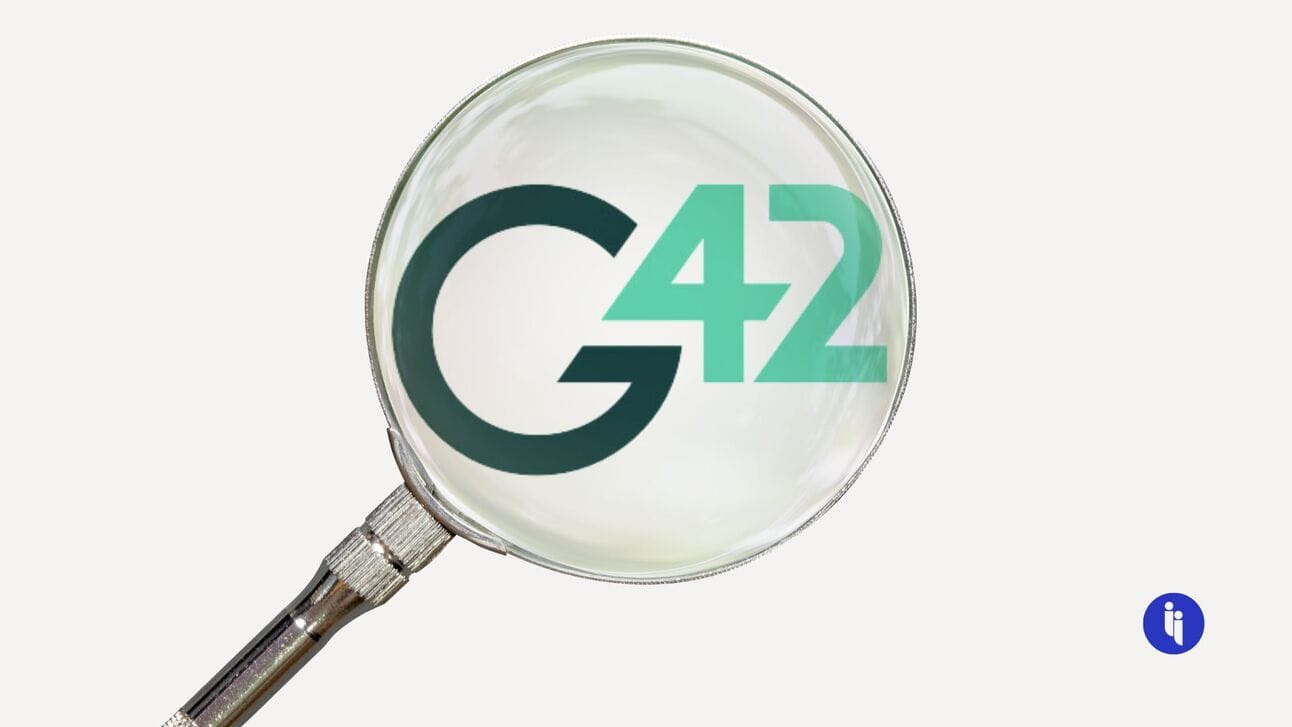US tech giant Microsoft has announced it’ll invest $1.5B in G42, the leading artificial intelligence (AI) firm in the UAE. The “strategic investment”, which gives Microsoft a minority stake in the company, aims to further the UAE’s ambitions as an AI hub while bringing yet another leading AI firm into Washington’s orbit.
G42 isn’t exactly a household name. It sounds like Aldi’s version of F45, but the ‘42’ is a reference to The Hitchhiker’s Guide to the Galaxy’s meaning of life.
And since launching in 2018, the Emirati firm has been collecting global partners like Pokémons. We’re talking AstraZeneca, OpenAI, Siemens, Nvidia, Mercedes, and beyond. It’s also added seven subsidiaries to help push into energy, healthcare, driverless cars, and government.
Stay on top of your world from inside your inbox.
Subscribe for free today and receive way much more insights.
Trusted by 134,000+ subscribers
No spam. No noise. Unsubscribe any time.
But what does G42 actually do? There’s a dash of mystery around the specifics, but it seems to dabble in supercomputing, AI research, investing, surveillance, genome-sequencing, Arabic-language LLMs, and beyond.
Interestingly, it’s run by Peng Xiao, a China-born, US-educated tech entrepreneur who renounced his US citizenship when relocating to the UAE. And it’s controlled by Royal Group, the private fund of Sheikh Tahnoon, who is the UAE ruler’s younger brother and national security chief.
Their G42 now forms a key part of the UAE’s effort to diversify its economy away from oil to brace for the energy transition. But the ruling family has also been diversifying its friends to brace for a geopolitical transition, hoping to preserve its US security ties while cultivating links with China and Russia.
And that’s where the intrigue comes in: The New York Times reported last year that US intelligence was troubled by G42’s links with black-listed, China-based companies like Huawei and BGI Genomics. The report also flagged Peng’s earlier ‘ToTok’ social media app that was allegedly used as a spying tool by the Emiratis.
Then in January, a US congressional committee went further, claiming:
- Peng “operates and is affiliated with an expansive network of UAE and PRC-based companies that develop dual-use technologies and materially support PRC military-civil fusion and human rights abuses” 🔥
- US firms that partner with G42 risk their tech getting stolen by G42’s China-based partners seeking to bypass US export controls, and
- US personal data risks ending up with China’s security agencies.
All this public scrutiny was evidently playing out while the US, the UAE, G42, and Microsoft held behind-the-scenes talks, mixing carrots (access to more advanced US tech) with sticks (the threat of more US scrutiny).
And it proved persuasive, as Peng told the Financial Times in December he was phasing out G42’s China-made hardware, before announcing in February he had already sold G42’s China-based interests.
That cleared the way for Microsoft to step in with cash and its Azure cloud tech, while its president (Brad Smith) gets a seat on the G42 board next to Sheikh Tahnoon.
As for Peng, he doesn’t give many interviews, but he summed it all up perfectly with the Financial Times last year: “For better or worse… we are in a position where we have to make a choice. We cannot work with both sides. We can’t.”
INTRIGUE’S TAKE
The White House has famously described its approach to tech and China as a “small yard, high fence”. The yard contains only America’s most sensitive tech, while the fence is Washington’s means of guarding it.
And this G42 saga says quite a bit about both the yard and the fence.
- The yard is valuable: It now contains things like Nvidia’s AI chips which, for now at least, have no peer (they also underpin Microsoft’s most advanced AI tech). So whether you’re a firm or a government, the road to AI leadership still runs through Nvidia and the US.
- The fence hurts: By all means, tell the world you want to be i) an AI leader, ii) a US partner, and iii) a tech player in China. It sounds great. But the US has now essentially told the UAE (and the world): pick two.
However, it’s also important to remember that the US isn’t the only one playing the game here. The UAE has now arguably just used China as leverage to extract more advanced tech out of a wary US.
And Microsoft, still displaying tradecraft that most tech giants (and many states) would envy, keeps popping up at exactly the right moment – whether to (almost) buy TikTok, partner with OpenAI, shape the debate on tech and democracy, or pry its way onto the board and cap-sheet of one of the world’s hottest names in AI (G42).
Also worth noting:
- Microsoft president Brad Smith and fellow executive Carol Ann Brown co-wrote an influential article back in 2019, arguing that the US and China were already on the cusp of a ‘Tech Cold War’.
- The New York Times reports that some US officials still remain concerned by G42’s ongoing China ties (eg, via executives who’ve previously developed surveillance software used in China).
- Microsoft is now the world’s largest company by market cap after overtaking Apple earlier this year.







